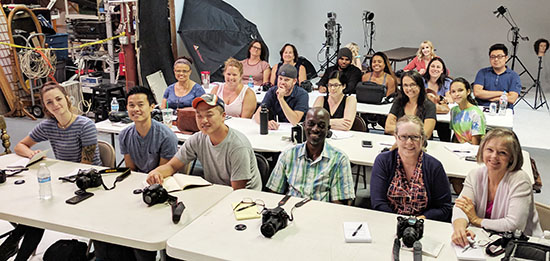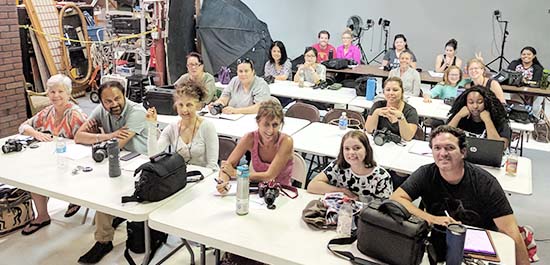This is part three on succeeding as a professional photographer. The question that I am always getting asked is what equipment and tools should I buy. “Canon, Nikon or Sony is coming out with a new whiz-bang gizmo, should I buy it?” In short, probably not. I am not going to recommend brands, because as long as you stick to the major manufacturers it doesn’t make a whole lot of difference in the long run.
First lets look at cameras. The body you choose depends a lot on what you will actually be shooting. If you are shooting action sports a camera with decent frame rate should be considered. Also read up on focus speed and focus tracking. Portraits are your primary business, then low light might be important, so look at noise levels for these images. In the end a lot of photographers choose a camera which does well in both areas, but isn’t the best at any. Another option is two cameras, one suited for each style.
Eventually you are going to need to have two cameras. As a professional you need to have a back-up available for emergency. In the beginning it may make sense to rent your back-up camera until revenues justify owning a second. Also remember your back-up does not need to be the same model as your primary. A lower end camera can work fine. Typically I rotate cameras from primary to back-up to sold. Last year’s model is often a great way to save.
Which brand of camera should you be using? If you know other photographers, using the same brand may be beneficial. You may have the ability to borrow a lens for flash in an emergency if you use the same gear. Also you will have someone to ask questions.
Lenses are another area of debate among photographers. A prime vs. a zoom is the one of the biggest questions. Primes will almost always give better results than zooms. But in the real world, it can be very difficult to tell the difference in a final print if you have good zooms. The most important thing is to buy good lenses. You will have them for a long time, whereas camera bodies in the digital world have become consumables unfortunately. Again, rent the specialty lenses as you need them. Owning a seldom used lens is a waste of precious money.
Lighting is the last key piece of equipment. Reflectors and bounce cards are your friend. Learn to use them and you will need fewer lights, saving money. If you are shooting outside the studio you need a good on camera flash. Lots of modifiers are available read reviews and get one you like, or make one. The ability to use your flash off of the camera will come in handy, so consider this as a future upgrade – brackets with cords or wireless remotes for longer distances.
In studio you can do a lot with as few as two lights, especially with the use of reflectors and a few good modifiers. Umbrellas are the lowest cost modifier, but softboxes tend to be the favorites among the pros. Get some decent stands and some sandbags to keep the lights from falling over. Once again look at wireless remotes, you can use cords to save some dollars, just be careful about tripping. Some lights have them built-in. This equipment can be rented too as needed when you are starting out.
Renting a whole studio for your shoots is a good idea when starting. A studio is a huge overhead with rent, utilities, alarms, insurance… Many studios rent to other photographers, and some cities have studios that only exist for rental purposes. Some rent equipment too making it every easier, albeit a bit more expensive.
Insurance is probably one of the most important areas that photographers will overlook. You need to not only insure all your equipment but also have general liability insurance protection. This can help you when you need financial assistance if any damage claims are alleged against you while working from your home studio. You may be able to add it to your home owner’s policy when you start out. Check as if you use your equipment for business, it is often excluded or requires a special rider.
The biggest equipment area to watch is spending. Don’t buy until you can justify with revenue. It is so easy to want the latest and greatest. Manufactures love to push this, but buy with caution. If you don’t manage your money, there will be no money to manage.
Next week I will continue this discussion and talk about computers, software and organizations.
Orcatek Photography – Phoenix
Studio Rental in Phoenix

